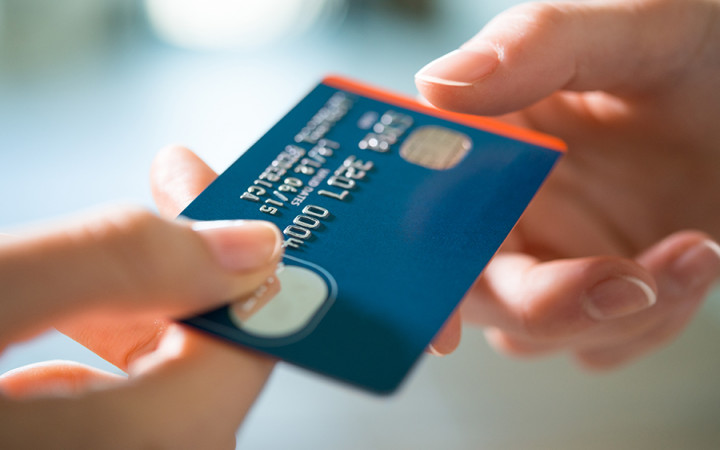Today’s Wonder of the Day was inspired by Lucy from London. Lucy Wonders, “How do credit cards work?” Thanks for WONDERing with us, Lucy!
Have you ever been to one of those huge electronics stores that seems to have all the latest electronic gizmos and gadgets? As you browse the aisles, you see all sorts of things to add to your wish list: headphones, smartphones, televisions, video game consoles, and cameras.
In the checkout line, you see a woman ahead of you with a pair of headphones you've been wanting for ages. You're a bit jealous, since they're expensive and you can't afford them right now.
When it comes time to pay, she doesn't pull a big wad of cash out of her purse. Instead, she slides a piece of plastic through a machine at the register and that's it! She walks out with the headphones.
What is this? Is it some form of magic? Can you get one of these magical pieces of plastic that'll allow you to obtain all sorts of awesome things without cash?
Rest assured! You will almost certainly obtain one or more of those pieces of plastic one day. They're called credit cards, and there's nothing really magical about them. You can use a credit card to make a purchase without cash, but that doesn't mean what you buy is free!
Credit cards are small plastic cards issued by a financial institution, such as a bank, that a customer can use to make purchases. When you use a credit card to buy something, the bank is essentially giving you a temporary loan.
Each purchase has a grace period — usually about a month — and, if you pay your balance in full within that grace period, you don't have to pay anything extra. If you don't pay your balance in full, however, then the bank will charge you an extra amount — called interest — each month until your balance is paid in full.
As you can see, credit cards can be very handy, allowing you to pay for purchases without cash. If you pay off your balance each month, you don't incur any extra fees.
However, they can also be dangerous if you don't pay off your balance in full each month. It doesn't take long for interest charges to add up, making purchases much more expensive in the long run than they would've been had you paid cash for them from the start.
So could you get a credit card, head to the store, purchase everything you've ever wanted, and then simply pay off those purchases over the rest of your life? Not exactly! You can't just charge any amount you want to a credit card.
When you apply for a credit card, the bank checks your credit score. This is a score that the bank uses to assess how you handle debt and how likely you are to pay back money that is loaned to you.
Based upon your credit score, any credit card you would receive would have a credit limit, which represents the maximum amount you'll be allowed to charge to the credit card. This amount can be as little as a few hundred dollars or as much as tens of thousands of dollars.
Once you reach your credit limit, your credit card will be declined if you attempt to make any further purchases. If you have an exceptional credit score and millions of dollars in assets, however, you may be eligible for a rare credit card that has no preset spending limit.
These rare credit cards are known as black cards. They're so exclusive that you usually can't even find any information about them online. They're often offered only by invitation to the wealthiest customers of a financial institution.
Would you want one of these special black cards? Perhaps…if money is no object! The fees associated with them can be quite high. For example, the American Express Centurion Card has an upfront $7,500 initiation fee just to acquire the card. Then, you also have to pay a $2,500 membership fee each year you have the card.





